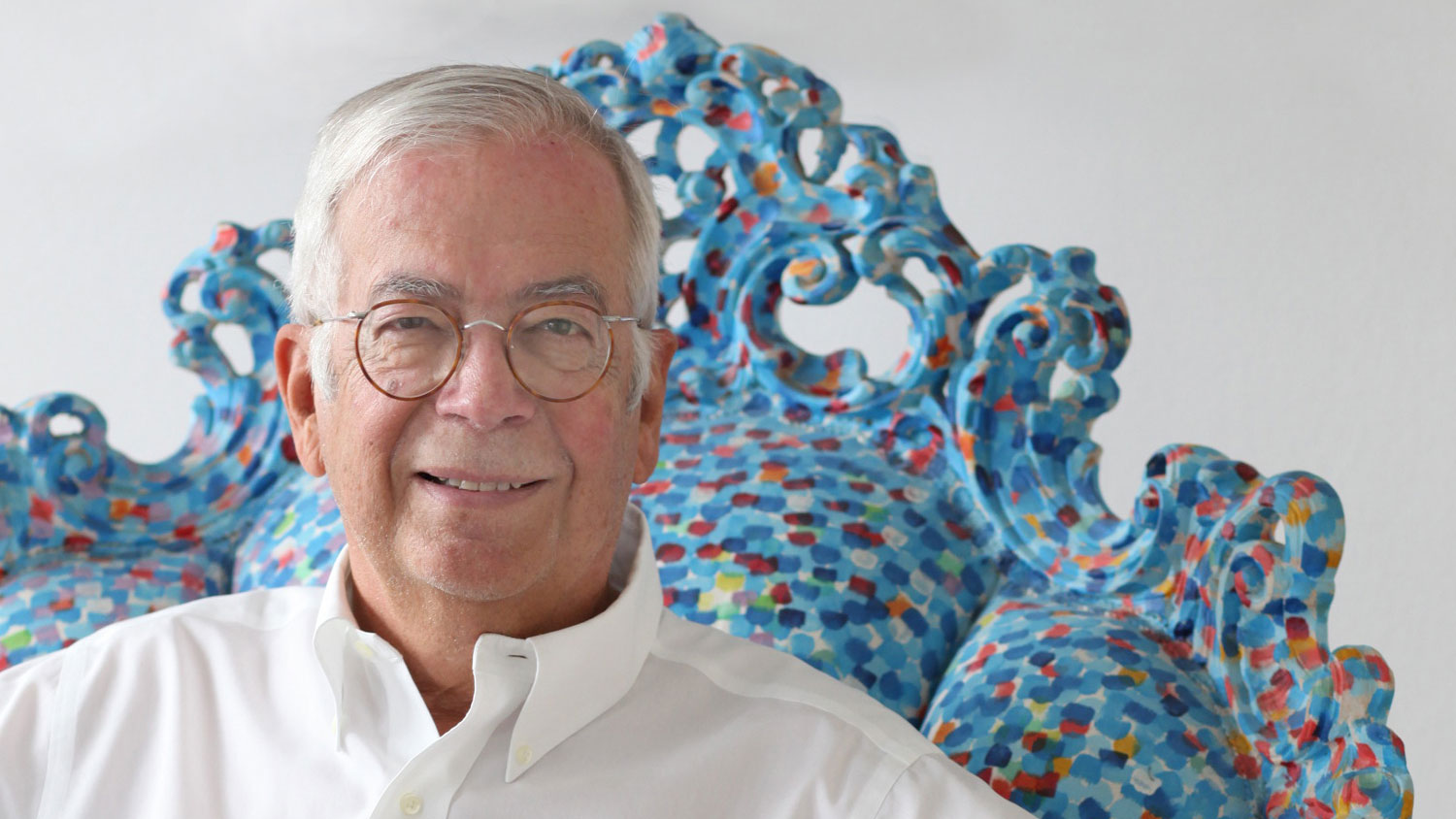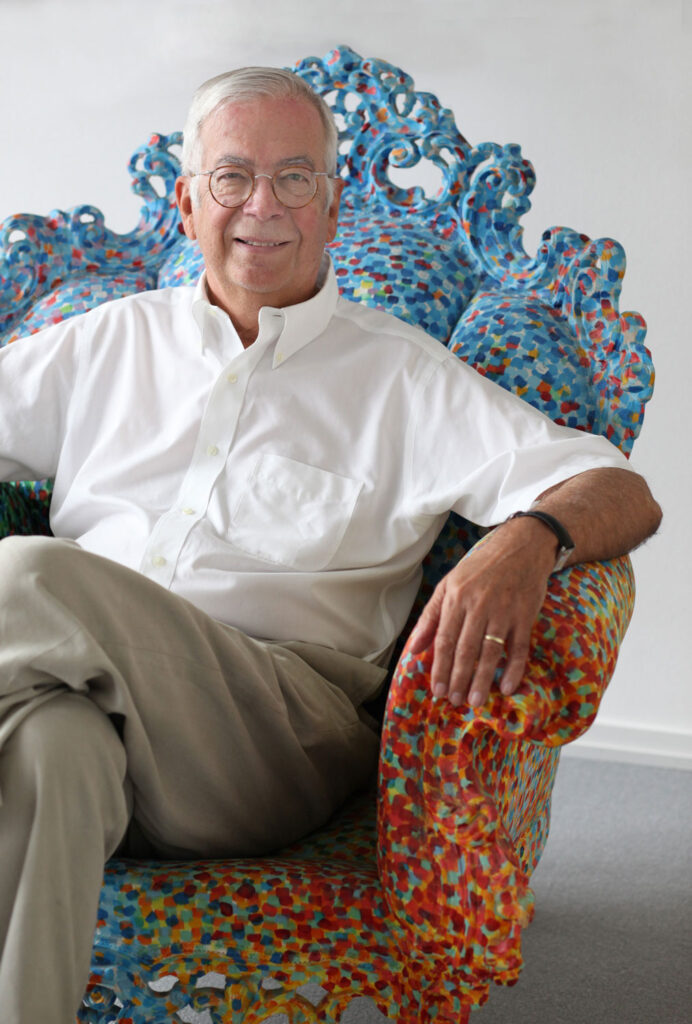
An Art Connoisseur with a Sense of Initiative
After a lifetime devoted to the arts, Jürgen Blankenburg – a broad-minded, soft-spoken yet resolute gentleman – has been awarded the Officer’s Cross of the Federal Cross of Merit. Since 1996 he has been the Chairman of the Board of the Foundation for Hamburg’s Art Collections.
A work of art which is continually changing, and at the same time is a fantastic playground for children…. It is not often that a highly recognized international artist like Olafur Eliasson would create something like this for a museum — and if so, it would come with a prohibitively expensive price tag. Nonetheless, several happy coincidences have made it possible for such a complex piece as the “Children’s Room” to come into the possession of Hamburg’s Kunsthalle.
The man who made this possible, ever appealing to the generosity of Hamburg’s affluent citizens, is Jürgen Blankenburg. This broad-minded, soft-spoken, yet resolute 74-year-old was recently awarded the Officer’s Cross of the Order of Merit of the Federal Republic of Germany for his lifelong engagement in the arts.
There was a time when Hamburg’s museums had a budget for acquisitions — but that was long ago. Today, when an institution wants to buy a piece of art, it must rely on the support of its circle of friends while appealing for the help of sponsors; otherwise nothing happens. Since 1996 Jürgen Blankenburg has been chairman of the board of the Stiftung für die Hamburger Kunstsammlungen. Created in 1956 the Foundation has since acquired 400 great works for Hamburg’s museums and in 2008 alone collected 450,000 Euros from its wealthy Hanseatic friends.
Mr. Blankenburg came into this position because his predecessor Erich Schliemann and a few trustees then on the board had been unwilling to give in to the request of Kunsthallen director Uwe M. Schneede to acquire Reiner Ruthenbeck’s “Ash-heap“. It was no surprise that this long time insurance broker, manager and business graduate had been given this new task. Art had always played an important role in his life: in his home on the Aussenalster artworks can be found wherever the eye comes to rest: Art that reveals an understanding of the arts. Blankenburg bought his first painting as a student in Paris — and interestingly, when he began as an assistant to the CEO of Thyssen Steel, his first assignment was to attend an art auction. There, he spent 14 days with the renowned, argumentative and competent art connoisseur Werner Schmalenbach.
“My interest in the arts didn’t contribute a great deal to my career in steel”, says Blankenburg with a twinkle in his eye. “They always said ‘He is an aesthete.‘ Others appeared tougher than me.” But Blankenburg remained true to himself and nevertheless made his way. “Art,” he knew, “sets creativity free. In the arts, it is possible to think outside the box.“ And thinking outside the box is something Blankenburg puts into practice: for him the freedom of thought is at least as important as the resulting creations of the mind. Moreover he married a woman who is devoted to the fine arts. Monika Blankenburg not only plays a musical instrument (the cello) as he does (the clarinet), she also gets involved — for the benefit of young musicians as a board member of the Deutsche Stiftung Musikleben, the German Music Foundation.
Jürgen Blankenburg’s commitment dates back much earlier, to 1952, when he had just turned 17 and experienced an “affluence shock.” As an exchange student, he had come from the bombed-out Ruhr area to a prosperous Alabama where peace had reigned since 1865. There he attended “a fantastic school where I learned a great deal.” Most importantly: “My sojourn in America opened my eyes for the differences in the world. This had a major impact on my life.” The realization that things could be seen or done differently has ever since been one of the key principles in Blankenburg’s life. Along with a lesson taught by his American host parents: one needs to get involved. “A lesson which has played a determinant role in all my life.”
Soon enough Blankenburg followed their lead — he is now active on the advisory board of various foundations, many of which further the creative talents of children from underprivileged backgrounds. For over 50 years he has been actively involved with the largest worldwide youth exchange organization, AFS Intercultural Programs, eight of which as the chairman of its finance committee. “When one has been a manager for 35 years”, says Jürgen Blankenburg pragmatically, “one can also apply these skills to a good cause.” Modestly he lays no claim to being a role model — but he is one.
Article by Katja Engler, published in DIE WELT on October 16, 2009. All rights reserved.
Publication by permission. Translation: Alan Albright and Marianne Meyer.
Original text in German


Jürgen Blankenburg in an armchair by Alessandro Mendini, a recent acquisition of the Stiftung für die Hamburger Kunstsammlungen .